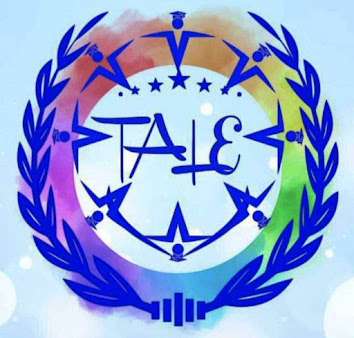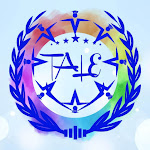English (Group-B)
SET-I
Part A
1. a) Justify the title of Ruskin
Bond’s story ‘The Eyes Have It’.
Ans. The title is appropriate because
it brings out the true worth of the gift of sight. It summarizes the entire
plot. Through the predicament of the blind narrator and the girl, the author
wishes to convey that it is only the eyes that have the power to help us
forming an accurate impression of the world around us. Till the end of the
story the narrator manages to play successfully his ‘game’ but cannot satisfy a
simple curiosity about the girl’s hairstyle.
The girl, on her part, also managed
to deceive the narrator but fails to realize that he was blind too. The new
passenger rightly points out the worth of eyes by saying, “she had beautiful
eyes – but they were of no use to her.”
b) How had APJ Abdul Kalam tried
to follow his father’s teachings in his life?
Ans.
c) Write a character sketch of
Mrs. Luella Bates Washington Jones.
Ans.
d) What questions arose in the
mind of the Tsar? What did he proclaim the correct answers? Could the learned
men satisfy him?
Ans. Ans. i) The Tsar wanted to know the answers of three questions to make him a more effective ruler. The questions that arose in the mind of the Tsar, are as follows:
Firstly, he wanted to know the
right time for every action. Secondly, he wanted to know the most important
people for him, and finally he wanted to know the most important work for him.
ii) He proclaimed throughout his
country a reward the person who could give him satisfactory answers to his
questions.
iii) No, the learned men could
not satisfy him with their different answers to his questions.
2. a) What images of life and death do we find in the poem "On Killing a Tree"?
b) What is the theme of the poem "Asleep in the Valley."
Ans. “Asleep In The Valley” is a poem about war and reveals the brutality and futility of war. The poem presents a peaceful and tranquil view where a young soldier is resting on the bed of Nature. But side by side the poet makes us aware about the brutality of war by showing his pale, open-mouthed, cold body and ultimately the two red marks. Through the poem Rimbaud asks relevance of the war that ends the young lives untimely that are as pure and innocent as Nature. Here the soldier’s sleep represents the eternal sleep that cannot be warmed and affected by anything. The poet tries to say that war is not only ending the young lives but affecting the peace in the Nature also.
c) Write a note on the comparison highlighted in the poem "Shall I Compare Thee To a Summer's Day".
Ans. In the very opening line of the sonnet, the poet likes to compare the beauty of his friend to the beauty of a summer's day. But there is the difference of degrees between them. His friend's beauty is more lovely and temperate. The attacks of ‘rough winds’ destroy the beauty of summer. Sometimes summer's beauty goes through extreme changes. Sometimes it is too hot, cloudy, and stormy. But his friend's beauty remains unchanged forever. Summer's 'lease' is also very short. But his friend's beauty is eternal. His beauty is preserved in the eternal lines of the poem. His beauty will never fade because this poem will provide his beauty with life.
d) Evaluate "The Poetry of the Earth" as a sonnet.
Ans.
3. a) Justify the title of the play "The Proposal".
Ans. The title of the play 'The Proposal' and right from the beginning to the end of the play, the plot revolves round a marriage proposal. Lomov comes to Natalya's house to propose her for marriage but both of them start quarrelling over the trivial matters like Oxen meadows and their pet dogs. But ultimately they reconcile with the help of Chubukov. Chekhov here exposes the non-romantic nature of marriage and resorts to satire in order to bring out the hollowness of marriage as a social institution. Hence the title is apt.
b) Write a short character sketch of Natalya Stepanova.
Ans. Natalya Stepanova is a young, unmarried girl of 25. She is the daughter of Chubukov and lives with him. Her desire is to have control over everything. She has strong will and knows what she is capable of and what she is not. She does all the household works, takes care of her father, helps to maintain the land and is in charge of the servants. She is well aware of her standing in the social circle. According to Lomov, she is an excellent housekeeper, not bad looking and well educated. Her father calls her a 'love-sick cat'. By nature she is very quarrelsome and abusive. She begins bitter quarrel with Lomov over trivial issues but ultimately reconcile with Lomov.
c) Evaluate "The Proposal" as a shadow of the late 18th century Russian society.
Ans. Chekov's Russia was the time of economic instability. People easily starved to death. The term 'marriage' originally to celebrate the love of young couples, but changes its meaning into the combination of wealth between two families. People of the society had to be desperate over marriage. Throughout 'The Proposal' two lovers clash and fight over misunderstanding and miscommunication, a common problem in conjugal life. Both are desperate for a partner. They neither respect nor care about each other in the hope that they will be able to acquire their desire through marriage. Love or concern for the other never enters into their minds.
4. a) Do as directed:
i) It would take me some time to discover something about her looks. (Voice Change)
Ans. Something about her looks would take some time to be discovered by me.
ii) " My parents were widely regarded as an ideal couple," he said. (Change the mode of narration)
Ans. He said that his parents had been widely regarded as an ideal couple.
iii) I have come to you, honoured Stepan Stepanovitch to trouble you with a request. (Split into simple sentences)
Ans. I want to trouble you with a request.
So I have come to you, honoured Stepan Stepanovitch.
iv) The humming insects don't disturb his rest. (Change into a complex sentence)
Ans. The insects that are humming, don't disturb his rest.
v) She left the door open. (Change into negative)
Ans. She did not keep the door close.
b) Fill in the blanks with appropriate articles and/or prepositions:
Well it often happens that people with good eyesight fail to see what is right in front of them. They have too much to take in, I suppose. Whereas people who cannot see have to take in only the essentially, whatever registers most tellingly on their remaining senses.
c) Correct the error:
I was unable to tell what the girl looks like. (Option: looking, looked, was looked)
Ans. I was unable to tell what the girl looked like.
5.
Read the following passage and answer the questions that follow:-
The
saving of certain wild animals from extinction has for many years been a
problem for zoologists and other specialists; but more recently the problem has
become so acute, and has received so much publicity, that most people are now
concerned about it. This may at first seem strange because one of the most
gratifying developments of the last few years has been the passing of strict
laws to protect wild animals and the consequent decline in the hunting of big –
game for sport. One reason is the "march of civilization". When an area
is wholly cleared of vegetation to make room for new towns, factory sites or hydroelectric
plants, the natural home of several species is destroyed. The displaced must either
migrate to another area or perish. Even the clearing of land for a road or an
airfield may involve 'pushing back' the jungle, and the smaller the area in
which wild animals compete for a living the smaller the number that can hope to
survive. Civilization brings, too, swift and easy transport and so assists
those who are determined to break the various protective laws. Thieves can
elude the game wardens, shoot an elephant for its tusks, a rhinoceros for its
horn, or a deer for its meat and be miles away from the site of the crime
before the dead or dying victim is even discovered. Civilization which brings
so many benefits to people brings also facilities for the heartless criminals who,
for only material gain, slaughter harmless animals and threaten the
disappearance of its kind from the earth forever.
a)
State whether the following statements are True or False. Write 'T' for True and
'F' for False. (You need not write Sentence. Write only the number) (1×4=4)
i)
The development of passing strict laws to protect wild animals had not been gratifying. ( F )
ii)
The 'march of civilization' leads to the destruction of several species. ( T )
iii)
Civilization is a hindrance to the criminals.
iv)
Criminals slaughter harmless animals and threaten its extinction only for material
gain.













No comments:
Post a Comment